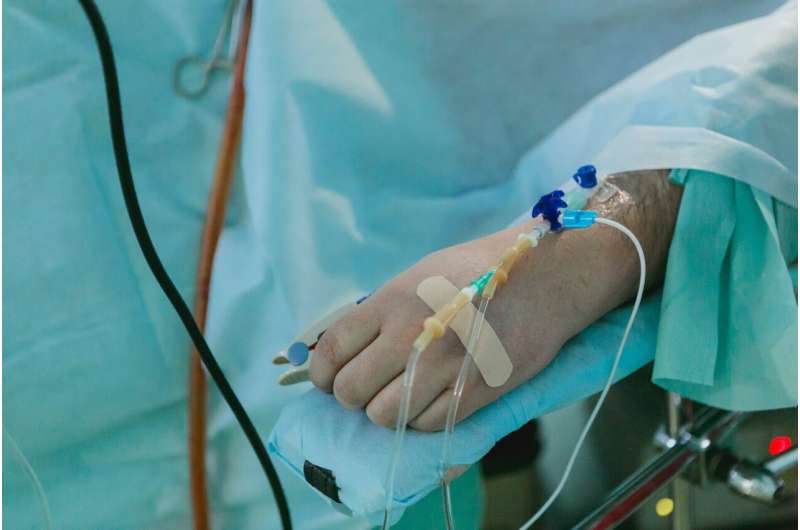How much protein is the appropriate amount for critically ill patients in intensive care? “This has been one of the burning questions in the field of clinical nutrition support,” says Charlene Compher, a professor of nutrition science in Penn’s School of Nursing.
A paper she and colleagues published in The Lancet sheds some light. According to findings from this collaboration, which included researchers from more than a dozen institutions in seven countries, more protein than the typical dosage did not benefit these patients, and, in the case of those with acute kidney failure, it actually caused harm.
“The findings were counter to what we would’ve expected,” Compher says.
As a researcher and clinician, Compher has spent the better part of a decade trying to understand malnutrition in clinical settings. In her field, protein has been touted as an important tool to help critically ill patients maintain muscle mass and physical function and to improve clinical outcomes. Yet Compher and colleagues couldn’t say for certain whether the usual dose or a higher one was optimal—the data simply didn’t exist—so they created a clinical trial to fill that void.
They weren’t starting from scratch, however. For the past 20 years, a registry has existed where clinicians from participating sites can voluntarily add data on nutrition practices and outcomes. That’s where Compher and colleagues turned for the Effect of Higher Protein Dosing in Critically Ill Patients Trial. They formulated a protocol that would test how protein dose affected the time to discharge for critically ill patients, as well as mortality at 60 days.
Between Jan. 17, 2018, and Dec. 3, 2021, they enrolled and randomized 1,301 patients 18 years or older from 85 different intensive care units (ICUs) in 15 countries. The patients had to have been in the ICU 96 hours or less, with the expectation that they would remain on a mechanical ventilator for the next two days, at a minimum. They also had to have one of five nutritional risk factors, like low or high body mass index, malnutrition, or frailty.
The control group received regular protein dosing, and the experimental group received a higher dose. “Then we had to move mountains to deliver the specific amount of protein,” Compher says. “The clinical dietitians were going to the patients’ bedside every day, looking at what they got the previous day, adjusting to make sure they didn’t get behind. There were a lot of clinical data to collect because we watched the protein intake for 28 days,” four times as long as most ICU-centered clinical trials.
Statistical analysis that followed showed no difference in outcomes between the two groups. “We hypothesized that higher protein would be better,” but it wasn’t, Compher says. “This is essentially a negative study.”
One finding did stand out, however: Extra protein turned out to harm patients with acute kidney injury and multiple organ failure. “We don’t know why, mechanistically, they had higher mortality, but they did,” she says. “We always worry about harm. We want to do no harm. So now that we know this about patients with acute kidney injury, I think we need to give them a more usual protein dose.”
Despite enrolling fewer than the 4,000 patients the researchers had originally intended, Compher says these findings provide clinicians some much-needed clarity. And yet there’s still more to learn, with next-step research already underway, including work Compher’s doing on malnutrition, and on obesity and protein dosing. She also hopes to dig deeper into the kidney-patient anomaly.
“The fact that this was an international collaboration and a volunteer effort is significant,” Compher says. “It speaks volumes about what people working in clinical settings can do when we’re able to put our heads together.”
More information:
Daren K Heyland et al, The effect of higher protein dosing in critically ill patients with high nutritional risk (EFFORT Protein): an international, multicentre, pragmatic, registry-based randomised trial, The Lancet (2023). DOI: 10.1016/S0140-6736(22)02469-2
Citation:
New insight into optimal protein dosing for critically ill patients (2023, April 6)
retrieved 9 April 2023
from https://medicalxpress.com/news/2023-04-insight-optimal-protein-dosing-critically.html
This document is subject to copyright. Apart from any fair dealing for the purpose of private study or research, no
part may be reproduced without the written permission. The content is provided for information purposes only.


